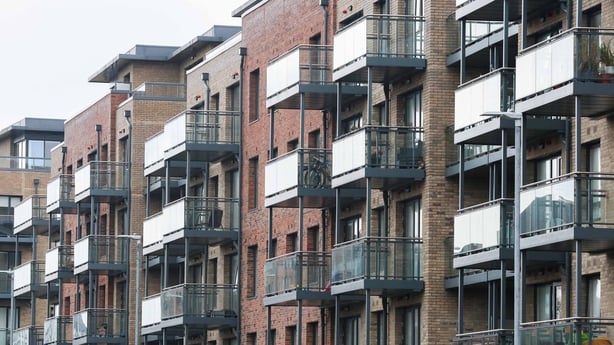Rent caps setting limits on the size of increases which landlords can charge were introduced in 2016 for three years to protect tenants from the rising cost of accommodation.
The intention was to allow renters some breathing space. Meanwhile, construction would address shortages during that temporary measure.
There is no doubt they did provide protection when originally introduced in the main urban areas.
But nine years on, they are seen as contributing to the housing crisis.
After they were initially implemented, they were rolled out to many other urban areas across the country.
In 2021, the 4% rent cap was reduced to 2% or the rate of inflation, whichever was lower.
It is now one of the tightest limits internationally.

Criticism from the property industry makes the argument that rent caps went too far and landlords are now unable to recoup maintenance costs.
Many international funds require a return of between 4% and 6% on their investment if they are to commit money to property development.
A yield below that is not sufficiently attractive because investors can find a better return by investing elsewhere.
Funds which invest in building apartment blocks, retaining ownership and leasing the units to tenants, complained that the 2% rent cap made investments unviable.
They warned that finance, which could be used to build new homes, and apartments in particular, was at risk.
Then last year there were indications that house building was showing little sign of increasing.
In January, the Central Statistics Office's residential dwelling completion figures for 2024 were met with alarm within Government circles.
Not only had the number of new homes fallen from 33,525 in 2023 to 30,330 last year, but the number of apartments built last year had collapsed by 24%.
This presented the Government with a huge problem.
A drop in new homes adds pressure to the rental market and pushes up already expensive property prices.
Read more:
Fraught days ahead for Government with planned changes to RPZs
Irish Institutional Property, the lobby group which represents funds with €20bn of investments, blamed rent caps for driving away finance which could be used for construction.
UCD lecturer Dr Michael Byrne points out that rent caps are not the only factor which deterred large funds from investing.
He said the other factors have been the cycle of higher interest rates over recent years and the cost of construction.
Dr Byrne also said the Rent Pressure Zones (RPZs) are "too restrictive although they have been effective in terms of affordability".
He added: "The real challenge for Government is how do you balance them, make them more flexible, a little more investor-friendly while at the same time trying to maintain the affordability.
"The last thing tenants are going to want to see is more rent increases."

Research by the Residential Tenancies Board with the Economic and Social Research Institute showed rent increases for existing tenants across the country are lower than for new leases.
The standardised average rent for new tenancies nationally rose by 5.5% year-on-year to €1,680 in the last three months of 2024.
It rose by 4.6% for existing tenancies nationally to €1,440 over the same period.
Housing charity Threshold argued RPZs need to stay until more affordable housing comes on to the market.
The organisation is sceptical that adjusting the existing caps is going to result in more accommodation. Furthermore, it says if new supplies do come on the market, these properties are unlikely to be affordable.
Over the weekend, RTÉ News reported details of Government's plans to overhaul the RPZs.
The tricky balancing act facing the coalition is that it needs to encourage investors back into the market without adversely affecting tenants.
Many acknowledge the existing rent caps have contributed to problems in the housing market.
The challenge is that it is very hard to relax them without consequences for tenants.
But the Government has little choice about reforming the existing rent caps if it wants to attract badly needed investment back to the market to increase the supply of new homes.







